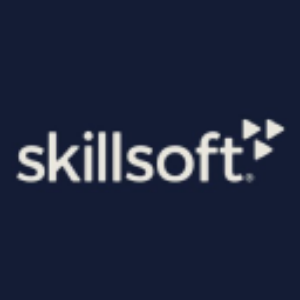New Skillsoft Research: AI and Leadership Skills Crucial to Elevating Employee Confidence and Performance
- Employees acknowledge AI/machine learning and leadership as their biggest skills gaps
-
Just
25% of employees rate their organization’s talent development programs as highly effective - Employees seek more dedicated time, new formats, and increased leadership support to meet upskilling needs
Surveyed employees rated leadership skills as the most critical for success in today’s workplace, followed by soft skills (e.g. communication, emotional intelligence), technology skills, and AI/machine learning skills. Respondents also acknowledged that their manager views leadership skills as the most important competency for team members to have, but nearly a third (
"This data highlights a significant issue: one-third of the workforce is questioning if they have the right skills to excel in their roles," said Ciara Harrington, Chief People Officer, Skillsoft. "These skill gaps hold workers back from reaching their full potential and can hinder organizations in achieving their key business objectives. As workers face an increasingly complex set of responsibilities, ongoing change in the workplace, and disruption spurred by generative AI, it’s critical for organizations to proactively build their talent’s skills. A skilled, agile workforce is inherently more confident, capable, and productive."
"Effective learning programs take a blended, multimodal approach that goes beyond building skills and drives measurable improvements in job performance and behavioral change on a continuous basis," continued Harrington. "By offering timely, high-quality learning content and interactive experiences that allow for hands-on practice of newly acquired skills, organizations can prepare their talent to leverage emerging technologies like GenAI, adapt swiftly to emerging regulations, and develop essential leadership skills.”
In-demand skills require a transformative approach to talent development.
Nearly
-
Despite the proliferation of GenAI tools,
62% of respondents said their organization’s AI training program is average to poor. -
Only
28% of respondents believe the leadership skills training provided by their organization is “excellent.” Just a third (31% ) said the same about soft skills training. -
Respondents cited group training (
33% ), mentoring (32% ), and coaching (30% ) as key components of a strong learning program. Tools like Skillsoft CAISY™ offer interactive coaching experiences that support in transforming leadership skill development.
Organizations are in the early stages of transitioning to a skills-based model.
In an era where adaptability is key, a skills-based talent development program where competencies are directly linked to business objectives can enhance workforce agility, employee performance, and the bottom line.
-
82% of respondents said their organization is taking steps to transition to a skills-based model. -
The most common actions being taken are providing skill- and role-based learning paths (
28% ), performing skill gap analyses (16% ), and implementing skills taxonomies (16% ). -
Many organizations are still in the early stages of this initiative, as only
19% of respondents say they receive regular skill assessments – a critical component of skills-based strategies.
To learn more about the findings from Skillsoft’s research, visit here.
Research Methodology:
Skillsoft’s research survey was conducted online in July 2024 through the Pollfish platform. The survey yielded 2,500 complete responses from full-time workers across various industries and roles in
About Skillsoft
Skillsoft (NYSE: SKIL) delivers transformative learning experiences that propel organizations and people to grow together. The Company partners with enterprise organizations and serves a global community of learners to prepare today’s employees for tomorrow’s economy. With Skillsoft, customers gain access to blended, multimodal learning experiences that do more than build skills, they grow a more capable, adaptive, and engaged workforce. Through a portfolio of best-in-class content, a platform that is personalized and connected to customer needs, world-class tech and a broad ecosystem of partners, Skillsoft drives continuous growth and performance for employees and their organizations by overcoming critical skill gaps and unlocking human potential.
View source version on businesswire.com: https://www.businesswire.com/news/home/20240919583440/en/
Investors
Shaina Keegan
shaina.keegan@skillsoft.com
Media
Cameron Martin
cameron.martin@skillsoft.com
Source: Skillsoft









